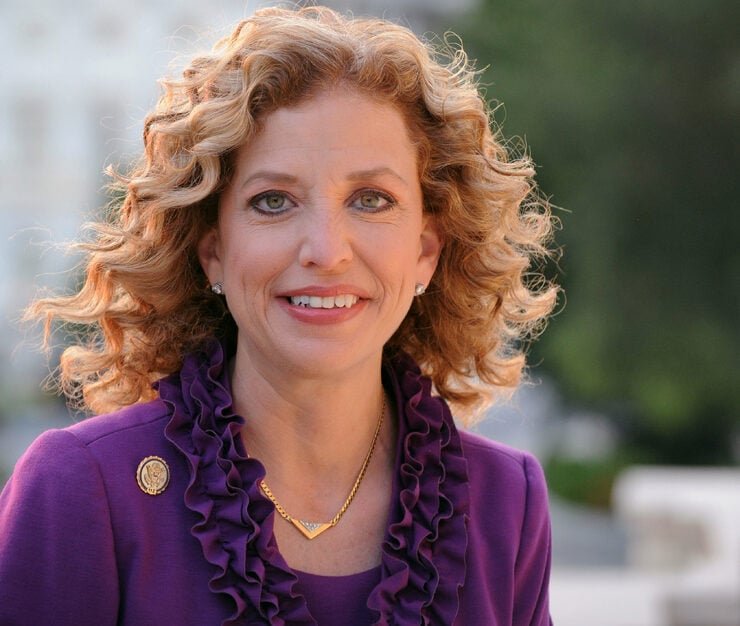Washington, D.C. – Nearly a decade after her controversial resignation from the Democratic National Committee, Rep. Debbie Wasserman Schultz continues to divide opinion within the Democratic Party. While she remains a powerful force in Washington and a longtime advocate on Jewish issues and women’s rights, many progressives still view her as a symbol of insider politics and party favoritism.
From the 2016 primary controversy to recent ethics violations, Rep. Debbie Wasserman Schultz’s political career reflects the ongoing tensions between grassroots movements and establishment leadership. For her supporters, she is a seasoned legislator with deep policy experience. For critics, she represents the very structures that have frustrated a generation of progressive activists.
Rep. Debbie Wasserman Schultz and the Progressive Backlash
The disconnect between Rep. Debbie Wasserman Schultz and the progressive base began during the 2016 Democratic presidential primary. As Chair of the Democratic National Committee, she was accused of favoring Hillary Clinton over Bernie Sanders. This accusation was later substantiated by leaked internal emails showing that DNC staff had actively discussed strategies to undermine Sanders’ campaign.
One email, in particular, referenced Sanders’ religion and suggested using it to question his authenticity among voters in more religious states. Although Rep. Debbie Wasserman Schultz denied direct involvement in that specific exchange, she was forced to resign just before the 2016 Democratic National Convention in response to the backlash.
To many Sanders supporters, that episode confirmed long-held suspicions about how the Democratic Party operates. They viewed Rep. Debbie Wasserman Schultz not only as a biased actor in that primary but as a gatekeeper preventing the rise of more progressive candidates.
Reddit Communities and Online Activists Keep Pressure Alive
Even years later, progressive-leaning forums like Reddit’s r/WayOfTheBern and r/politics continue to scrutinize Rep. Debbie Wasserman Schultz. Users frequently cite her DNC leadership, past opposition to marijuana reform, and close ties to corporate donors as reasons for ongoing distrust.
These communities have also focused on her recent violations of the STOCK Act, which mandates timely reporting of stock trades by members of Congress. Rep. Debbie Wasserman Schultz has violated that law four times, most recently failing to report a trade in New Gold Inc. for over 14 months. While the violations resulted in small fines, the repeated noncompliance has fueled accusations of ethical misconduct and further alienated progressive voters.
Support from Party Leadership Remains Strong
Despite criticism from the left, Rep. Debbie Wasserman Schultz maintains strong backing from the Democratic Party’s leadership. She holds influential positions on several House committees and continues to play an active role in shaping policy on healthcare, foreign affairs, and education.
She has also taken the lead in defending Jewish communities against antisemitism and was instrumental in the formation of the Congressional Jewish Caucus. These efforts have strengthened her support among moderate Democrats and Jewish organizations, even as progressives continue to call for new leadership.
Rep. Debbie Wasserman Schultz Navigates a Divided Party
The divide between the progressive base and the party establishment is not unique to Rep. Debbie Wasserman Schultz, but her history places her at the center of that tension. She represents the complicated legacy of a party trying to balance institutional experience with the demands of a rapidly changing electorate.
Rep. Debbie Wasserman Schultz’s recent criticisms of New York City mayoral candidate Zohran Mamdani, who refused to denounce the slogan “Globalize the Intifada,” further highlight this dynamic. While some Democrats praised her leadership in combating antisemitism, others viewed her stance as part of an establishment backlash against rising progressive voices.

A Legacy Still in the Making
Rep. Debbie Wasserman Schultz continues to be a polarizing figure whose political legacy is still evolving. To her allies, she is a champion of Jewish advocacy and women’s rights. To her detractors, she is a symbol of a political system resistant to reform.
As the Democratic Party confronts internal divisions ahead of future elections, the story of Rep. Debbie Wasserman Schultz remains a powerful example of the challenges involved in bridging the gap between progress and power.
















